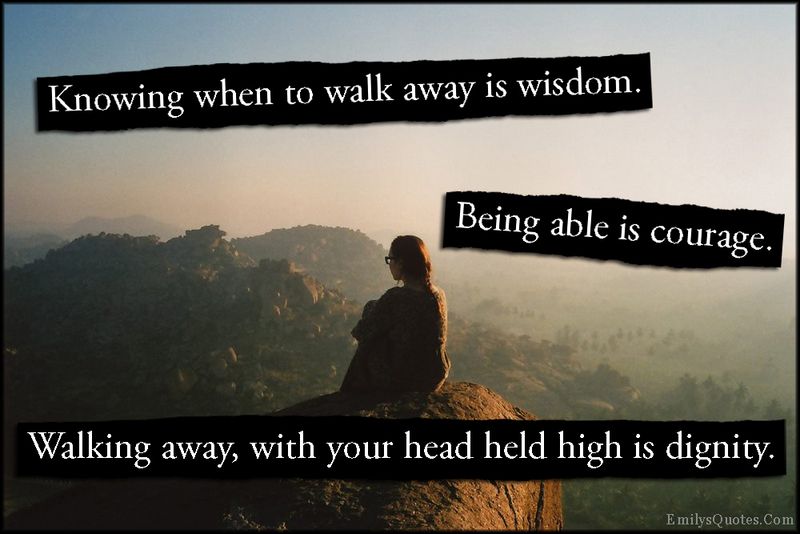Navigating the complexities of unrequited feelings can be challenging, but it’s essential to approach such situations with emotional intelligence and self-respect. This guide offers you 17 insightful ways to handle these feelings, enabling you to move forward with grace and dignity.
1. Accept it without overanalyzing
When you realize someone isn’t interested in you, the first step is to accept this fact without diving into endless analysis. Trying to decipher every word or action can lead to unnecessary stress and confusion. Acceptance is about acknowledging reality without getting entangled in ‘why’.
By embracing what is, rather than what could be, you open the door to emotional freedom. It allows you to move forward without the weight of self-doubt. This process, although difficult, builds resilience.
Let go of the need to scrutinize every interaction. Acceptance doesn’t mean indifference; it means you’re choosing peace over turmoil. This decision empowers you, creating space for personal growth and authentic relationships.
2. Don’t chase clarity—they’ve shown you already
Often, when someone isn’t interested, we seek clear, verbal confirmation of their feelings. However, actions usually speak louder than words. When faced with avoidance or non-committal behavior, take it as a clear indication.
Chasing after clarity can lead to unnecessary heartache. Trust what’s in front of you, rather than longing for definitive words. Not only does this save you from prolonged anxiety, but it also enables healthier emotional boundaries.
Remember, clarity isn’t always found in explicit statements. Sometimes, it’s found in the silence or the distance. Recognizing this truth can be liberating and pave the way for emotional recovery.
3. Resist the urge to prove your worth
When someone doesn’t reciprocate your feelings, it’s tempting to prove you are worth their time. This urge often stems from insecurity and fear of rejection. Instead, focus on validating your own worth.
Proving yourself to others can lead to a cycle of dependency on external validation. Embrace self-worth by acknowledging your strengths and achievements. Internal validation fosters a healthy self-image.
By shifting the focus from them to you, you develop deeper self-respect. This internal shift not only enhances personal growth but also attracts healthier relationships where mutual respect thrives.
4. Limit mental energy spent on “what ifs”
Dwelling on ‘what ifs’ can be mentally exhausting. These hypothetical scenarios often lead nowhere and only serve to deepen feelings of inadequacy. Instead of getting lost in potential outcomes, focus on the present reality.
Shifting your attention away from these thoughts can free up mental space for more constructive and fulfilling pursuits. The ‘what ifs’ are a barrier to moving forward and finding peace.
Redirect your energy towards activities that bring joy and fulfillment. This proactive approach not only enhances your well-being but also encourages a more positive outlook on life.
5. Refocus on your own goals
Unrequited feelings can be all-consuming, often derailing personal goals and ambitions. By refocusing on your own goals, you reclaim control over your life and priorities.
Set clear, attainable objectives for yourself. Whether it’s career, health, or personal growth, investing energy into your aspirations fosters empowerment and self-assurance.
This renewed focus not only aids in overcoming heartache but also propels you towards achieving your dreams. Remember, your journey is your own, filled with potential and promise.
6. Stop checking their social media
In the age of digital connectivity, it’s easy to fall into the trap of monitoring someone’s social media. This habit can become an unhealthy obsession, feeding insecurities and prolonging emotional distress.
Instead, disconnect from the digital world and engage with your physical surroundings. Taking a break from social media allows you to focus on your own life and interests.
This conscious decision fosters emotional distance, aiding in detachment and healing. By letting go of the urge to check their updates, you reclaim your emotional space and freedom.
7. Talk it out with someone you trust
Having someone to confide in can provide immense relief when dealing with unrequited feelings. Sharing your experience with a trusted friend or family member offers a fresh perspective and emotional support.
This act of reaching out not only lightens the emotional burden but also strengthens your support network. Trusted individuals can offer advice or simply be a comforting presence.
Connecting with others reinforces the notion that you are not alone in your journey. Having a compassionate ear can be invaluable in navigating feelings of rejection and loneliness.
8. Don’t take it personally—it’s rarely about you
When faced with unrequited love, it’s easy to internalize the rejection, assuming there’s something inherently wrong with you. However, someone’s lack of interest often reflects their own circumstances or preferences, not your worth.
Realizing this can lift an immense emotional weight off your shoulders. You are much more than anyone’s opinion or interest level, and your value remains unchanged.
By not taking it personally, you protect your self-esteem and allow yourself to move forward without the burden of self-blame. Embracing this mindset nurtures a stronger, more resilient inner self.
9. Notice how you feel around them
Pay attention to your internal responses when you’re around the person who doesn’t reciprocate your feelings. How do they make you feel? Are you anxious, happy, or indifferent?
Understanding your emotions can guide you in making informed decisions about the relationship. If negative feelings outweigh the positive, it might be time to reconsider your emotional investment.
This self-awareness is crucial in determining whether to maintain or distance the connection. By noticing your feelings, you cultivate a deeper understanding of yourself and your emotional needs.
10. Avoid putting them on a pedestal
It’s natural to idealize someone you like, but placing them on a pedestal can distort reality. This act often leads to overlooking their flaws and inflating their virtues.
Recognizing that everyone is imperfect can help restore balance in how you perceive them. By demystifying this image, you free yourself from unrealistic expectations.
This clarity allows for healthier interactions and reduces the intensity of unreciprocated feelings. Seeing them as human is a step towards emotional liberation and personal growth.
11. Say no to false hope
Clinging to false hope can prolong emotional pain and hinder healing. Holding onto the possibility of changed feelings can trap you in a cycle of waiting and disappointment.
Instead, embrace reality with clear eyes, acknowledging that the situation may not change. This acceptance is not about giving up; it’s about choosing emotional health over uncertainty.
Moving forward requires courage and a willingness to let go of what isn’t serving you. By saying no to false hope, you pave the way for genuine opportunities and personal growth.
12. Reflect on what you truly want
Taking the time to reflect on your desires can be enlightening. What do you truly want from a relationship, and does it align with the current situation?
This introspection helps clarify your needs and whether they are met. It can also reveal what you value most in connections, fostering deeper self-awareness.
Understanding your true desires can guide you in making decisions that honor your well-being. It’s a journey toward authenticity and fulfillment, where your needs take precedence.
13. Reframe it as redirection, not rejection
Viewing unrequited love as redirection rather than rejection can transform your perspective. Instead of seeing it as a failure, consider it an opportunity to realign with your true path.
This mindset shift empowers you to see possibilities rather than barriers. It encourages resilience and adaptability in the face of disappointment.
By reframing the experience, you open yourself to new adventures and connections. Life’s detours can lead to unexpected growth and joy, propelling you toward a fulfilling future.
14. Spend time where you’re valued
Surrounding yourself with those who appreciate you reinforces your self-worth. Spending time in environments where you’re valued can heal wounds caused by unreciprocated feelings.
These interactions provide a comforting reminder of your inherent worth and the love available to you. They create a nurturing space where you can thrive without seeking approval.
Prioritizing these connections over uncertain ones fosters emotional security and happiness. It’s an affirmation of your value, independent of one person’s interest.
15. Clear the space emotionally
Clearing emotional space involves letting go of attachments that no longer serve you. This process can include decluttering both your physical and emotional environment.
Removing reminders of unreciprocated love creates room for new experiences and growth. It’s a tangible step towards healing and moving forward.
This act of clearing space symbolizes a fresh start, inviting positivity and potential into your life. It reflects your readiness to embrace change and seek joy.
16. Be honest with yourself about your needs
Honesty with oneself is vital in understanding and communicating your needs. Recognizing what you truly require from relationships enables you to seek connections that support your well-being.
This self-honesty builds a foundation for healthier interactions and prevents settling for less than you deserve. It empowers you to prioritize your needs without apology.
By acknowledging your needs, you attract relationships that respect and fulfill them. It’s an act of self-love and a commitment to your happiness.
17. Move forward with dignity, not regret
Moving forward with dignity involves accepting the situation and choosing grace over resentment. Regret can tether you to the past, but dignity propels you toward a brighter future.
By focusing on personal growth and the lessons learned, you transform pain into strength. This approach not only heals but also enriches your journey.
Embrace the path ahead with confidence, knowing that each step is a testament to your resilience. Dignity is your ally in crafting a life filled with joy and fulfillment.


















